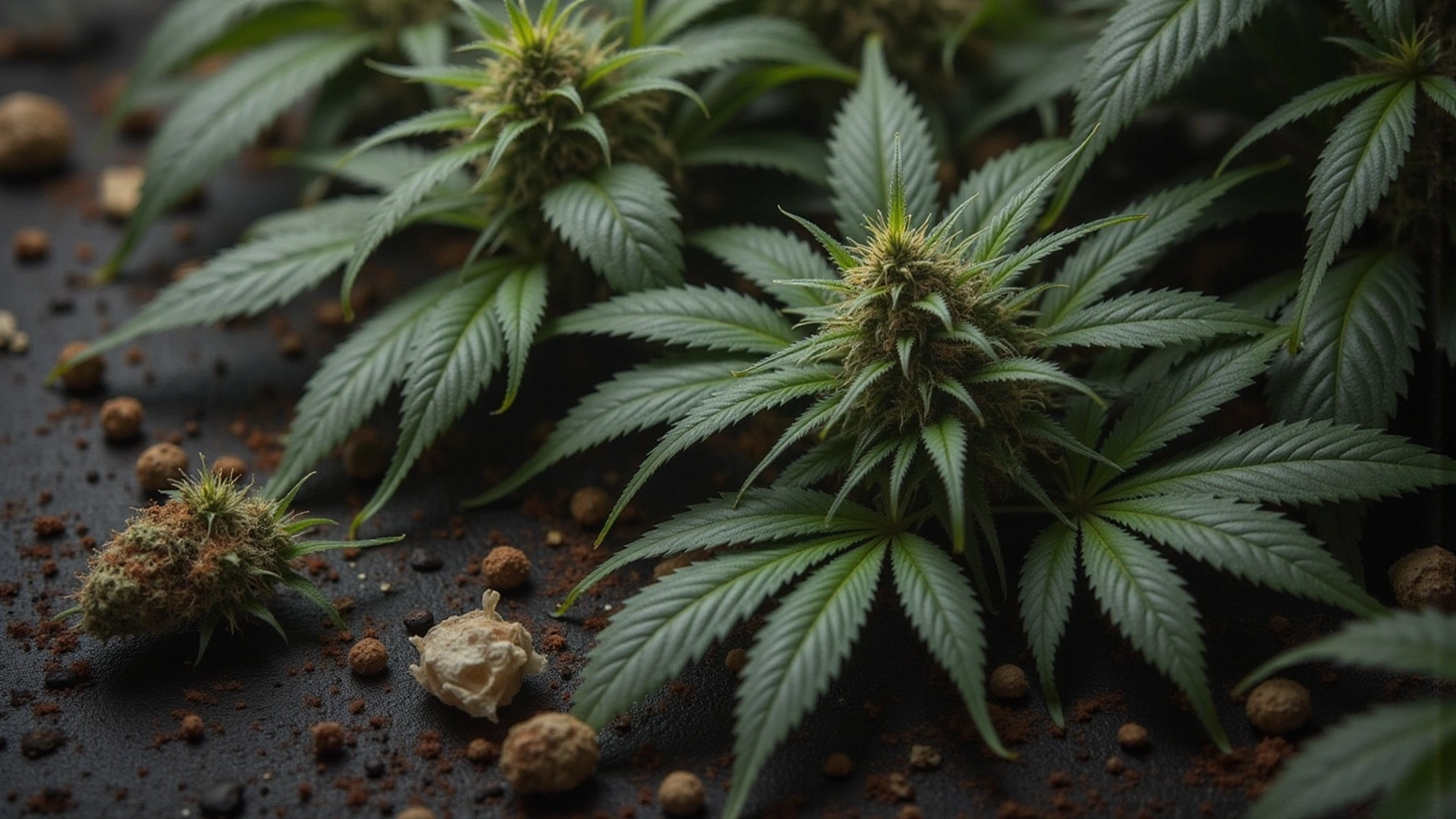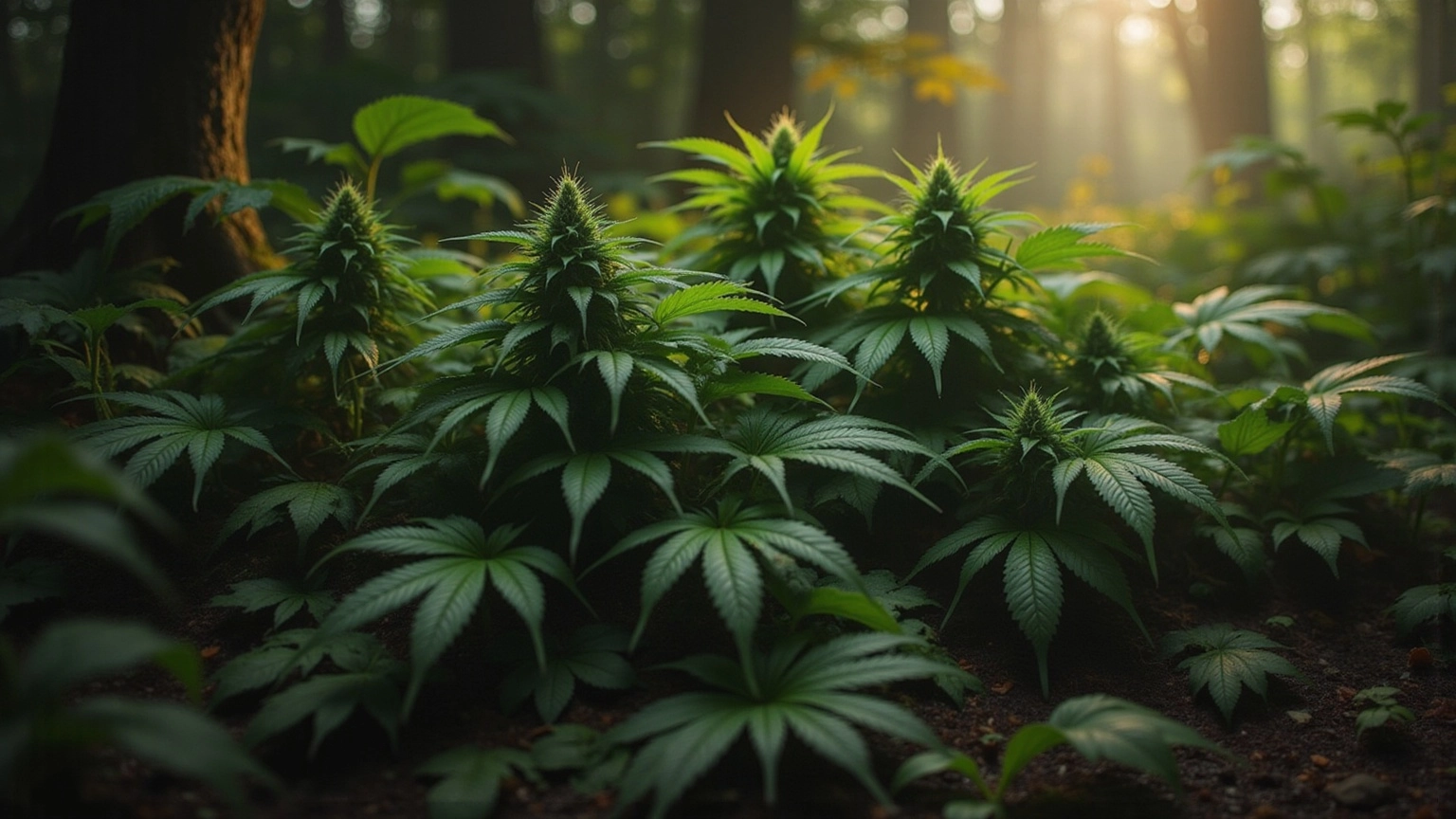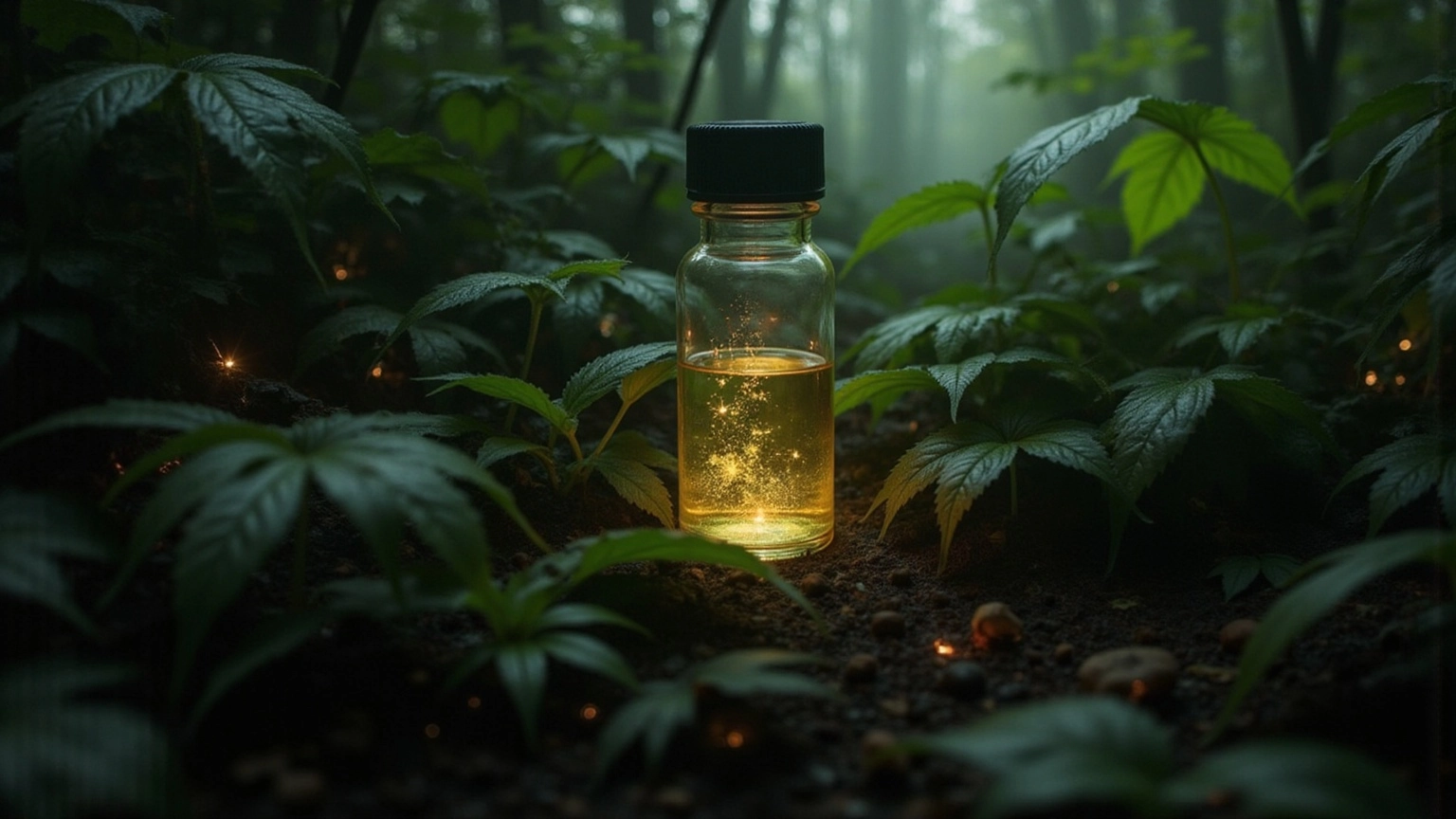
Is THCA Good? Unveiling Its Benefits and Unique Properties
Share
Overview
THCA isn’t just another cannabinoid; it’s a game-changer. Think anti-inflammatory and neuroprotective effects without the psychoactive haze of THC. Research whispers of its power—alleviating chronic pain and nausea, carving out a unique space in the cannabis wellness realm. But wait, there’s more. Legal shadows loom over its use, adding a layer of intrigue to its already captivating profile. Dive deeper into the world of THCA and uncover what it truly means for your cannabis journey.
Introduction
Tetrahydrocannabinolic acid, or THCA, lurks in the shadows of cannabis culture—a mysterious compound with a treasure trove of potential benefits, yet devoid of the psychoactive punch that THC delivers. As the allure of natural remedies intensifies, THCA rises like a phoenix, offering therapeutic properties that could flip the script on health and wellness.
But here's the kicker: with its legal status swinging wildly and its effects still under the microscope, many are left to ponder: is THCA really a safe haven for those craving relief without the intoxicating haze?
Understanding THCA: The Basics and Its Unique Properties
Tetrahydrocannabinolic acid—ever heard of it? This non-psychoactive cannabinoid lurks in raw hemp plants, waiting to be discovered. Unlike its notorious cousin THC, which sends you soaring into a euphoric haze, THCA keeps you grounded, offering all the therapeutic benefits without the intoxicating side effects. This distinction is crucial for those craving the plant's healing powers while questioning, is THCA good for maintaining their grip on reality? Think of it as the calm before the storm, the precursor to THC that transforms when heated—whether you're smoking, vaping, or cooking. Decarboxylation turns it into THC, showcasing its unique character and making it a tantalizing option for health seekers who want to explore whether THCA is good without the high. And let’s not forget, this compound is rich in various cannabinoids and terpenes, amplifying its medicinal prowess and establishing it as a cornerstone of the cannabis plant.
But wait, there's more. Studies are hinting that this compound boasts anti-inflammatory and neuroprotective qualities, and many are asking whether THCA is good for chronic pain relief and neurodegenerative disorders. Research even suggests that THCA is good, as it might outshine THC in certain healing realms while delivering symptom relief without the fog. For example, Δ-THCA has a binding affinity of 209 nM to PPARγ—now that’s some serious therapeutic potential. Yet, tread carefully; potential side effects like nausea and indigestion lurk in the shadows. And let’s talk legality. The classification of tetrahydrocannabinolic acid varies by state, a vital detail for consumers to grasp, especially since it’s legal as long as the total THC content stays under 0.3%. This makes it a key player in the marijuana scene, particularly for those who prioritize wellness and seek alternatives to traditional THC products.
At Darc Arts, we celebrate the unique aesthetic and lifestyle woven into marijuana use. We invite you to dive deep into the artistic layers of its compounds while savoring the healing benefits that await. Ready to explore the darker, richer side of cannabis culture?

Exploring the Therapeutic Benefits of THCA: Health and Wellness Applications
This cannabinoid raises the question of whether thca is good, as it’s a game-changer in the therapeutic cannabis scene. Think anti-inflammatory, neuroprotective, and anti-emetic—this trifecta raises the question, is thca good for redefining wellness? Imagine if the question of whether thca is good could help ease the relentless grip of arthritis or silence the nausea that haunts chemotherapy patients. Studies scream its potential, raising the question of whether thca is good at slashing inflammation like a hot knife through butter, offering a lifeline to those ensnared in chronic pain.
But wait, there’s more. Its neuroprotective prowess raises the question of whether thca is good for shielding brain cells from the ravages of time and disease. Alzheimer’s? Parkinson’s? This compound, which is thca good, might just be the guardian angel we never knew we needed. And let’s not forget its anti-emetic magic, which raises the question of whether thca is good for those battling the waves of nausea and vomiting.
In a world that often leans on pharmaceuticals, this compound is thca good and stands out as a bold alternative. It’s not just a remedy; it’s a revolution in holistic wellness, and many wonder if thca is good for those who crave natural solutions. Are you ready to dive deeper into this seductive world of cannabis? The secrets await, and they’re just a puff away.

The Science Behind THCA: Mechanisms of Action and Effects on the Body
What if the secret to your wellness lies in the shadows? This compound dances with the endocannabinoid system (ECS), a labyrinthine network that orchestrates pain, mood, and immune response. It’s not just a casual flirtation; it’s a deep connection with the CB1 and CB2 receptors, wielding the power to tame inflammation and provide neuroprotection. Imagine it—tetrahydrocannabinolic acid, often questioned with the phrase 'is thca good', stepping in like a non-steroidal anti-inflammatory drug (NSAID), but with a twist.
But wait, there’s more. This compound doesn’t just play defense; it’s armed with antioxidant properties, shielding your cells from the relentless assault of oxidative stress. Picture it as a guardian in the chaotic world of modern life, a beacon for those yearning for non-psychoactive alternatives to conventional meds. It’s not just about pain relief; it’s about mood stabilization, leading to the question of whether is thca good for those daring enough to seek holistic wellness.
And let’s not gloss over its potential. Preclinical research whispers of its role in battling nausea and seizures, hinting at its prowess in managing gastrointestinal disorders and metabolic anomalies. As clinical trials edge closer, focusing on chronic pain and mood disorders, one question looms large: Are you ready to navigate the local regulations surrounding cannabis products? It’s a journey toward responsible use, and it starts with understanding the power at your fingertips. Dive deep into this world, where every puff holds the promise of transformation.

Legal Considerations: Navigating the Landscape of THCA in Cannabis Culture
The legal status of this compound? It's a tangled web, shifting dramatically from one jurisdiction to the next. Thanks to the 2018 Farm Bill, hemp-derived products with less than 0.3% THC are federally legal—yes, that includes similar compounds. But here's the kicker: when heated, this compound can morph into THC, casting shadows of uncertainty in some states. Some have tightened the reins with stricter regulations, while others throw open the gates to cannabis products. For consumers, this means staying sharp and aware of local laws around cannabis is not just smart—it's essential for compliance and safe usage. As the cannabis landscape shifts and evolves, determining if THCA is good becomes vital for both consumers and businesses navigating this smoky frontier.

Conclusion
Tetrahydrocannabinolic acid (THCA) isn't just another cannabinoid; it's a game-changer, a seductive alternative that offers a treasure trove of therapeutic benefits without the mind-bending effects of THC. Imagine harnessing the healing powers of cannabis while keeping your clarity intact. THCA invites you to explore wellness without the intoxicating haze.
This compound flaunts its anti-inflammatory, neuroprotective, and anti-emetic prowess, suggesting it’s a fierce contender in the battle against chronic pain, nausea, and neurodegenerative conditions. Some studies even hint that THCA could outshine THC in specific therapeutic realms. For those seeking natural remedies, this is a siren call. But tread carefully—the legal landscape around THCA is a labyrinth, and knowing your local regulations is essential for safe, compliant use.
As the quest for holistic wellness intensifies, THCA stands at the forefront of a revolution in natural healthcare. Its diverse applications and potential to reshape health approaches make exploring THCA more than just a fleeting trend; it’s a deeper dive into the rich tapestry of cannabis and its countless benefits. Engaging with this compound could unlock new pathways to health. So, are you ready to discover if THCA is the key to elevating your well-being?
Frequently Asked Questions
What is THCA?
THCA, or tetrahydrocannabinolic acid, is a non-psychoactive cannabinoid found in raw hemp plants. It offers therapeutic benefits without the intoxicating effects associated with THC.
How does THCA differ from THC?
Unlike THC, which produces a euphoric high, THCA does not cause intoxication. It is the precursor to THC and transforms into THC when heated through a process called decarboxylation.
What are the potential health benefits of THCA?
THCA is believed to have anti-inflammatory and neuroprotective qualities. Research suggests it may be beneficial for chronic pain relief and neurodegenerative disorders, potentially offering symptom relief without the cognitive fog associated with THC.
What are the side effects of THCA?
Potential side effects of THCA include nausea and indigestion.
What is the legal status of THCA?
The legality of THCA varies by state. It is generally legal as long as the total THC content remains under 0.3%.
What compounds are found in THCA?
THCA is rich in various cannabinoids and terpenes, which enhance its medicinal properties and contribute to its therapeutic potential.
How does THCA interact with the body?
THCA has a binding affinity to PPARγ, which indicates its therapeutic potential and suggests it may outperform THC in certain healing aspects.
